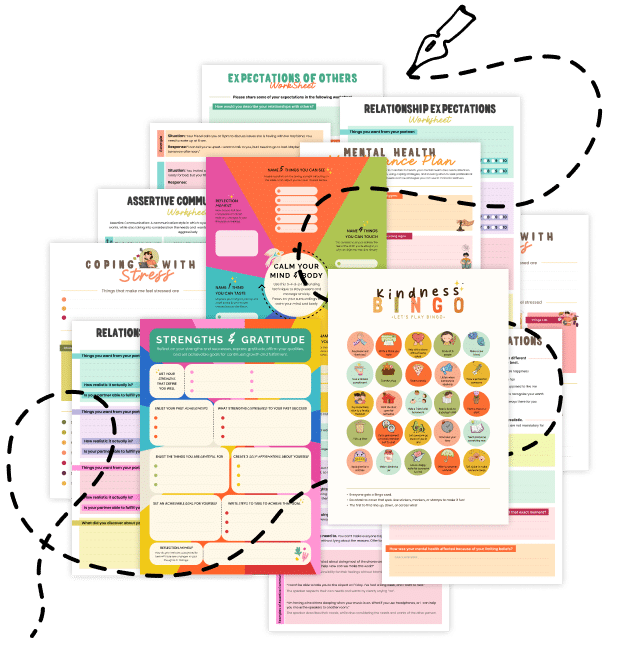20 Things You Should Know About Cognitive Surplus
Enhance your creativity and productivity by exploring these 20 insights on Cognitive Surplus—what it is, why it matters, and how you can harness your free mental energy for innovative and constructive pursuits. Discover how repurposing idle time can lead to personal growth, social impact, and a more fulfilling life.
1. What Is Cognitive Surplus?
Cognitive Surplus refers to the reservoir of free time and mental energy available for creative, learning, and productive activities beyond routine tasks.
2. Origin of the Concept
Coined in the digital age, the idea highlights how modern technology and automation free up time that can be repurposed for innovation and community-building.
3. Transforming Idle Time
Instead of wasting spare moments, cognitive surplus encourages you to channel idle time into activities that enhance creativity, learning, or social good.
4. Boosting Innovation
When people invest their free cognitive resources into creative projects, it often leads to groundbreaking ideas and solutions across various fields.
5. Enhancing Lifelong Learning
By utilizing extra mental energy for education and skill development, you can continually expand your knowledge and expertise.
6. Empowering Collaborative Projects
Cognitive surplus fuels collaborative endeavors, from open-source projects to community initiatives, harnessing collective brainpower for shared goals.
7. Fostering Social Impact
By investing surplus cognitive resources in civic projects or social causes, communities can drive meaningful change and innovation.
8. Promoting Personal Growth
Engaging in creative and intellectual pursuits during free time can lead to improved self-awareness, satisfaction, and overall well-being.
9. Digital Platforms and Sharing
Online communities and social media provide platforms where individuals can share creative output, transforming personal cognitive surplus into global contributions.
10. Economic Implications
Extra cognitive capacity can contribute to economic development by spurring innovation and creating new opportunities in the gig and creative economies.
11. Enhancing Problem-Solving Skills
Utilizing spare mental energy to tackle challenging problems can sharpen your analytical skills and boost cognitive flexibility.
12. Encouraging Creative Expression
Extra cognitive capacity allows you to explore artistic or inventive endeavors that might otherwise remain unexplored.
13. Reducing Stress Through Engagement
Channeling idle time into productive activities can lower stress levels by providing a sense of purpose and achievement.
14. Balancing Leisure and Productivity
Cognitive surplus promotes a healthy balance where leisure time is not wasted but is used to foster intellectual or creative growth.
15. Harnessing Technological Tools
Apps, online courses, and digital collaboration platforms help you make the most of your cognitive surplus by offering structured ways to learn and create.
16. Overcoming Procrastination
By recognizing and tapping into your cognitive surplus, you can turn procrastination into proactive learning and creative output.
17. Building a Culture of Innovation
Organizations and communities that encourage the productive use of surplus cognitive resources often see increased innovation and collaborative spirit.
18. Nurturing Intrinsic Motivation
Investing your surplus cognitive energy in self-directed projects can strengthen intrinsic motivation and foster a deeper connection to your work.
19. Measuring Your Impact
Tracking how you use your free mental energy can help you evaluate your creative output and ensure that your efforts contribute meaningfully to your goals.
20. Related Topics to Explore
- Brain Dump Routines – Learn how offloading thoughts can free up cognitive space.
- Conceptual Chunking – Discover how breaking information into manageable pieces enhances learning.
- Cooperative Learning Effects – See how collaboration multiplies creative output.
- Intrinsic Motivation Cultivation – Find strategies to nurture your inner drive.
- Learned Industriousness – Understand how persistent effort leads to long-term success.
Quick Tips to Boost Your Cognitive Surplus
- Schedule “Idea Time”: Block out regular periods in your day dedicated solely to creative thinking or learning new skills.
- Leverage Digital Tools: Use apps and online platforms that help you organize and channel your free time into productive activities.
- Set Clear Goals: Define what you want to achieve with your extra cognitive resources, whether it’s learning a new language or developing a creative project.
- Engage in Collaborative Projects: Join online communities or local groups where you can share ideas and work together on innovative projects.
- Reflect on Your Use of Time: Regularly review how you spend your free time and adjust your activities to ensure you’re making the most of your cognitive surplus.
Embrace these insights and tips to harness your Cognitive Surplus, transforming idle moments into opportunities for creativity, learning, and positive change!


